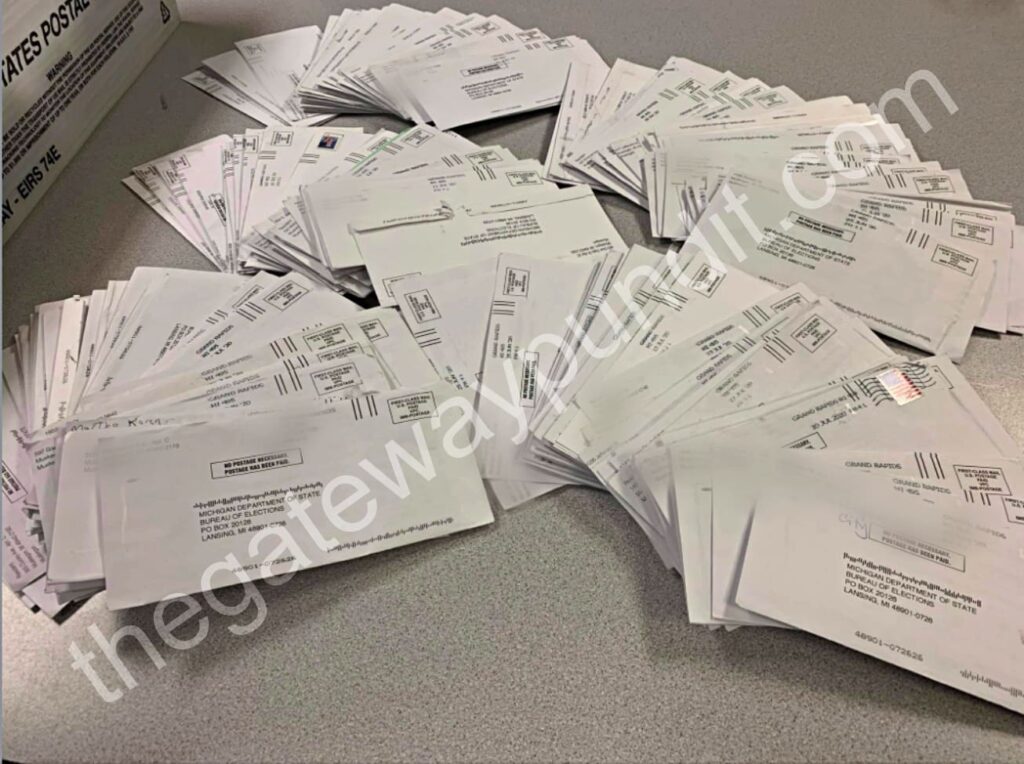The recent legal battles involving the Republican National Committee (RNC) in Michigan and North Carolina have revolved around policies that enable overseas citizens to vote in their home states. Particularly in Michigan, RNC officials contested a rule by Secretary of State Jocelyn Benson, which allows voters who have never resided in the state, but have connections such as a spouse or parent who did, to cast their ballot from abroad. This challenge was perceived by the judge overseeing the case as a deliberate attempt to “disenfranchise” voters, a sentiment echoed by legal authorities in North Carolina who determined that the RNC failed to provide substantial evidence supporting their claims of electoral fraud.
Judge Sima Patel of Michigan’s Court of Claims emphasized the timeliness of the RNC’s lawsuit in her ruling, deeming it an “11th hour attempt” that was filed too late in the electoral process. This ruling effectively protected the rights of children and spouses of former Michigan residents living overseas to exercise their voting privileges. In North Carolina, Judge John W. Smith similarly held that the RNC’s request for an emergency order against counting overseas ballots was unjustified, as the party did not present credible evidence to support their case.
Following the rulings, Secretary of State Jocelyn Benson highlighted the decisions as a victory for both voters and the principle of democracy. She argued that the court’s verdict favored military service members and their families living abroad, ensuring they could actively participate in the electoral process without undue barriers. Benson characterized the RNC’s lawsuit as a strategic maneuver aimed at disenfranchising eligible voters, reinforcing her office’s commitment to uphold voting rights.
In contrast, voices from the RNC, such as Patty McMurray, asserted that the lawsuit was fundamentally about preventing fraudulent voting rather than targeting military voters or their families. McMurray insisted that the measures in question were designed to safeguard the integrity of the electoral process, arguing that the procedures opened the door to potential abuse and compromise of voters’ rights. This divergent interpretation underscores the polarizing nature of voting rights discussions in contemporary American politics.
Ultimately, these recent judicial outcomes reflect the broader themes of electoral integrity and access to voting for non-resident citizens. Legal analysts suggest that such cases could set important precedents concerning the rights of overseas voters, influencing policies in other states and impacting future electoral processes. These rulings not only underscore the legal battle over voting rights but also highlight the inherent tensions in navigating the complex relationship between state policies and the participation of citizens abroad.
The decisions made by courts in Michigan and North Carolina resonate beyond the states themselves, raising questions about the interpretation of voting rights in an increasingly globalized world. As citizens increasingly reside outside the borders of their home states, the ongoing discourse surrounding their electoral rights will likely shape legislative frameworks moving forward. The outcomes of these legal challenges point toward a critical examination of voter access and advocacy, all while engaging with larger questions of democracy amid claims of fraud and integrity in the electoral process.

